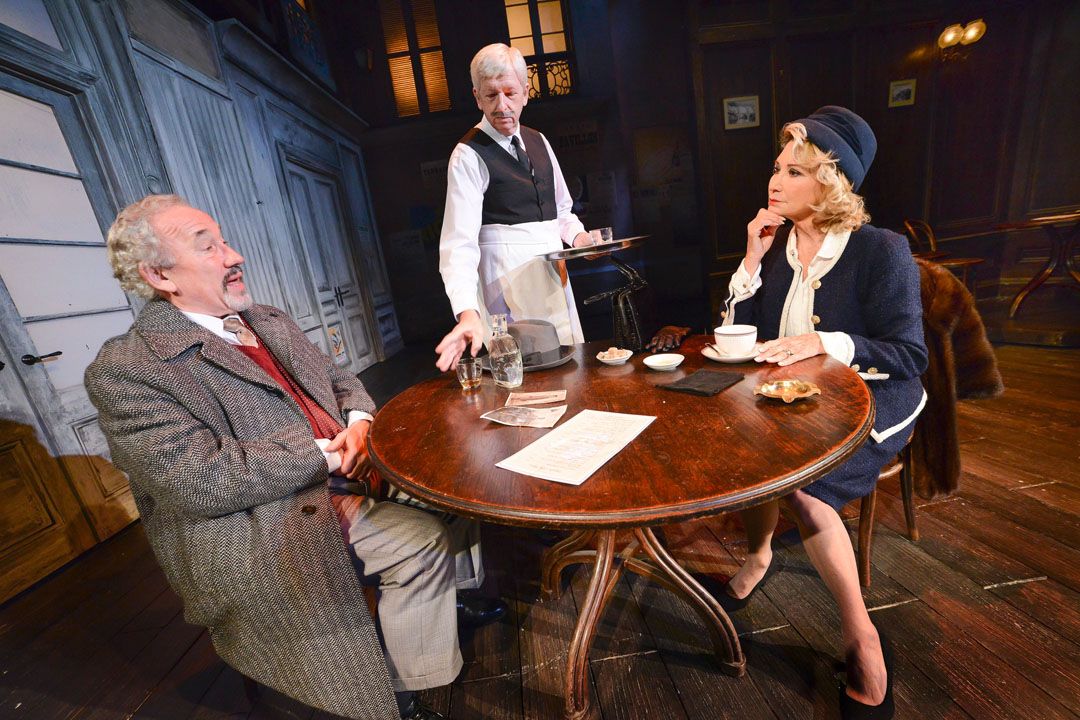‘The classic bittersweet comedy’ is how Chin-Chin is described on the poster, which is also adorned with a picture of a broadly smiling and dapper Simon Callow, and the lovely and perfectly coiffed Felicity Kendall, leaning warmly on his shoulder. They both hold full flutes of bubbly, stand against an optimistic blue sky complete with Eiffel Tower and simply radiate bonhomie. I think playwright François Billetdoux would have approved of this graphic deception, the ironies that followed were made all the darker for it.
When Billetdoux was only an infant, his father was shot dead by his uncle, and his mother died from tuberculosis when he was just seven, leaving him to be brought up by a dour and strict grandmother. It is not unsurprising therefore to find that written into the core of the ‘jolly’ japes in Chin-Chin are phantoms of loneliness, status loss, confusion, and a fingernail-hold on self-respect. “Our lives are meaningless,” declares Billetdoux through one of his lead characters – there is nihilism in this 1950s Parisian ‘farce’.
Callow and Kendall build their unlikely alliance brilliantly. Callow as the rootless Italian, Cesareo Grimaldi, and Kendall as the displaced middle-class English Paméla Pusey-Picq. They are sharing a marital crisis. Both their spouses have walked out on them, but worse, have formed a new relationship with each other.
Led on by the whisky-quaffing Grimaldi, Kendall’s Paméla convincingly embraces a self-destructive path in her desperate bid to recapture any kind of emotional warmth. Teetering towards the idea of a liaison, Paméla chooses to fall back on the comfort blanket of her own dignity: “Look at the brute lying there,”she utters, as Cesareo topples over and falls asleep just as a conquest seemed to be on the cards. It gets the biggest guffaw of the night.
With Callow and Kendall on stage we are always travelling first class. I enjoyed their body language as much as their spoken words. There were some eccentric moments it has to be said – none more so than when Paméla’s son Bobby (Joshua Dickenson) emerges from being locked in a cupboard, a fate one wonders, that might have befallen the young Billetdoux at the hands of his grandmother.
Michael Taylor’s street and apartment scenes, Martin Hodgson’s sound and David Howe’s subtle lighting all give a good sense of this not-so-gay Paris. As the story unfolds, it would seem that the only way is down for our unlikely couple as they extend the flimsiest of lifelines to each other. But there are still darker twists to come, and resolution comes at a price. – Simon Bishop


